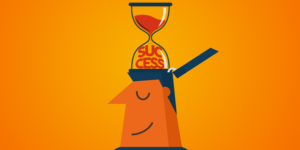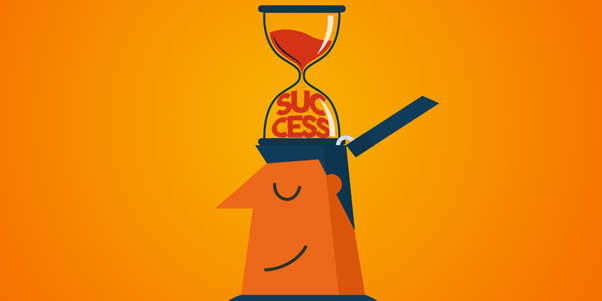What are the reasons that serious bettors need patience?
- Why is patience a virtue for bettors?
- Understanding cognitive biases’ effect
- How can we make rational decisions by using patience
- Are we more impatient because of technology?

Living off from betting is usually dramatized by a fancy story that it is about the one big decision win that is life changing. However, it is not this way in reality. To succeed, bettors would require discipline, working hard and learning quickly. It is important for bettors to equip themselves with patience and this would be further explained in this article.
Apart from making the bet with the best bookmaker and obtaining the relevant information, bettors need to understand this psychological side in terms of betting. Everybody makes a bet due to various reasons. However, it would be very important to follow certain rules in order to make consistent profits despite the motivation of betting.
What is the reason that patience is a virtue for bettors?
The definition of patience is when an individual will not be anxious or annoyed even though there is existence of suffering, problems or even delay. Patience is usually disregarded as an essential component in betting for making money. The key component to be a successful bettor is having patience, good calculation skills to obtain the expected value, beating the closing line, and work best in an environment that will be affected by luck and randomness.
The law of big numbers is arguably the greatest way in explaining the importance of patience for betting. The probability distribution principle is the fundamental of the theorem by Jacob Bernoulli. For betting, there are expectations when a coin lands on tails or head, or when the roulette ball stops on black or red both score an equal probability from a restricted sample.
In one way or another, things like roulette wheel and coin toss will eventually even out. Likewise, if there is an advantage by the bettor, which is bigger than the margin of the bookmaker, cases of luck and randomness, will at one point, even out. This would require bettors’ patience to not restrict the sample size, as this expectation will eventually happen.
In Joseph Buchdahl “Becoming A Profitable Bettor”, he as well points out an important trait of being a bettor. He utilize the example of Nate Silver whereby it illustrate that even a poker player with skills would still be losing even after he has played over 100,000 game within 2 years by playing 40 hours weekly. Although this example is of extreme extend, but it illustrates that even though you may have an advantage, but it would only be certain if the results were out.
Understanding cognitive biases’ effect
Bettors may know those usual traps that people will fall into; understanding the fallacy of a gambler is that if they are patient long enough, they will eventually make money as long as they have an advantage. Nonetheless, logical reasoning might be affected by cognitive biases.
Betting Resources has various articles that examine cognitive biases’ impact towards a bettor’s decision-making process. Whether this bias is hindsight bias or favourite-longshot bias, the attribute of patience is one of those factors that would assist bettors to make better betting decisions that are rational.
Success in long-term vs short-term profit
Hyperbolic discounting can be avoided if bettors have patience. Hyperbolic discounting happens when a bettor chose smaller instant pay out as compared to a larger pay out that requires longer time. This is evident while observing staking methods and reaffirm that diverse betting profiles can use a specific method.
There are bettors that prefer big immediate wins and will place their maximum bankroll bet at one go even though they know it has a high risk of losing it all whereas there are bettors that utilize progressive methods similar to Fibonacci like continually betting when they lose in order to recover previous losses. Nonetheless, fixed and proportional staking methods like Kelly Criterion effectively eliminate and reduce risk – but what is the reason that bettors are not using these methods?
Rationality and patience
If we follow rational choice theory, all of our decisions will be made with the notion that we are reducing losses and maximising advantage. Nonetheless, this does not always happen in betting.
For instance, when a bettor intends to make a wager of $10 with their normal bookmaker that offered 2.22 odds but other bookmakers offered 2.25, which give $0.30 extra, will they switch bookmakers?
There is a 50-50 chance that they will not change the bookmaker. However, given the same scenario but the betting amount increased from $10 to $100000, the odds difference will amount to $3000, the bettor will most likely change bookmaker. Isn’t both scenarios sharing the same chance of maximising their advantage?
Experienced bettors understand the importance of better odds, which gives them extra value regardless of the amount they will make. They understand that it would require additional work to seek extra value. By practicing patience, they will enjoy more profit by having better odds.
As for rationality, it would be vital to know that anxiety will increase behaviours that are more irrational. By practicing patience, the bettor would be able to minimize irrational behaviours and therefore leading them to make more rationalised decisions.
Are we more impatient because of technology?
Apart from betting, technology advancement has allowed better platforms to fulfil needs and acquire goods. Ordering pizza and buying groceries can just be touched or clicked away and getting a cab is much easier and convenient now.
Due to this yearning of instant gratification, it has influence betting as well. Bettors are offered with countless ways to make their bet that only involve small and minimal thoughts bets. It has been very long since the existence of curated bets, but “trending bets” or “most popular bets” shows how recreational betting is controlled by the herd behaviour (bandwagon effect).
Waiting for the anticipated scenario
In summary, it is important for bettors to practice patience. Even though at times you will still be losing while having positive expected value, it is vital to know that it is just a series of losses. If it is stretched with a bigger sample, you will then make profit.
Getting an upper advantage above the bookmaker is betting. Best bet costs can be found via calculating positive expected value and knowing the margins. Nonetheless, this formula will work best if patience were practiced. Betting is a long process and is not an immediate win like the lottery.





